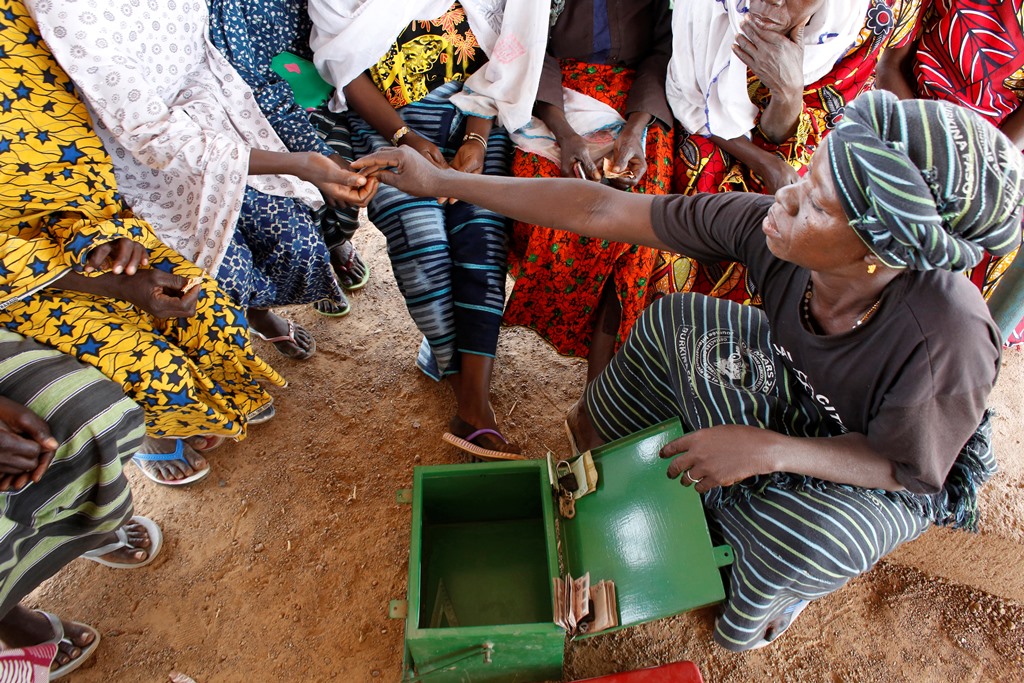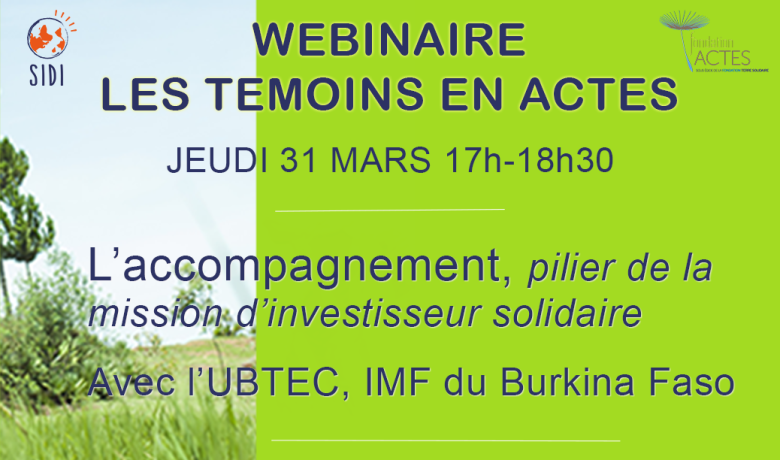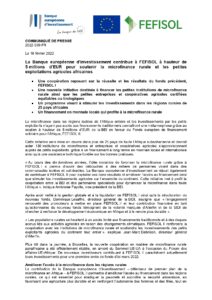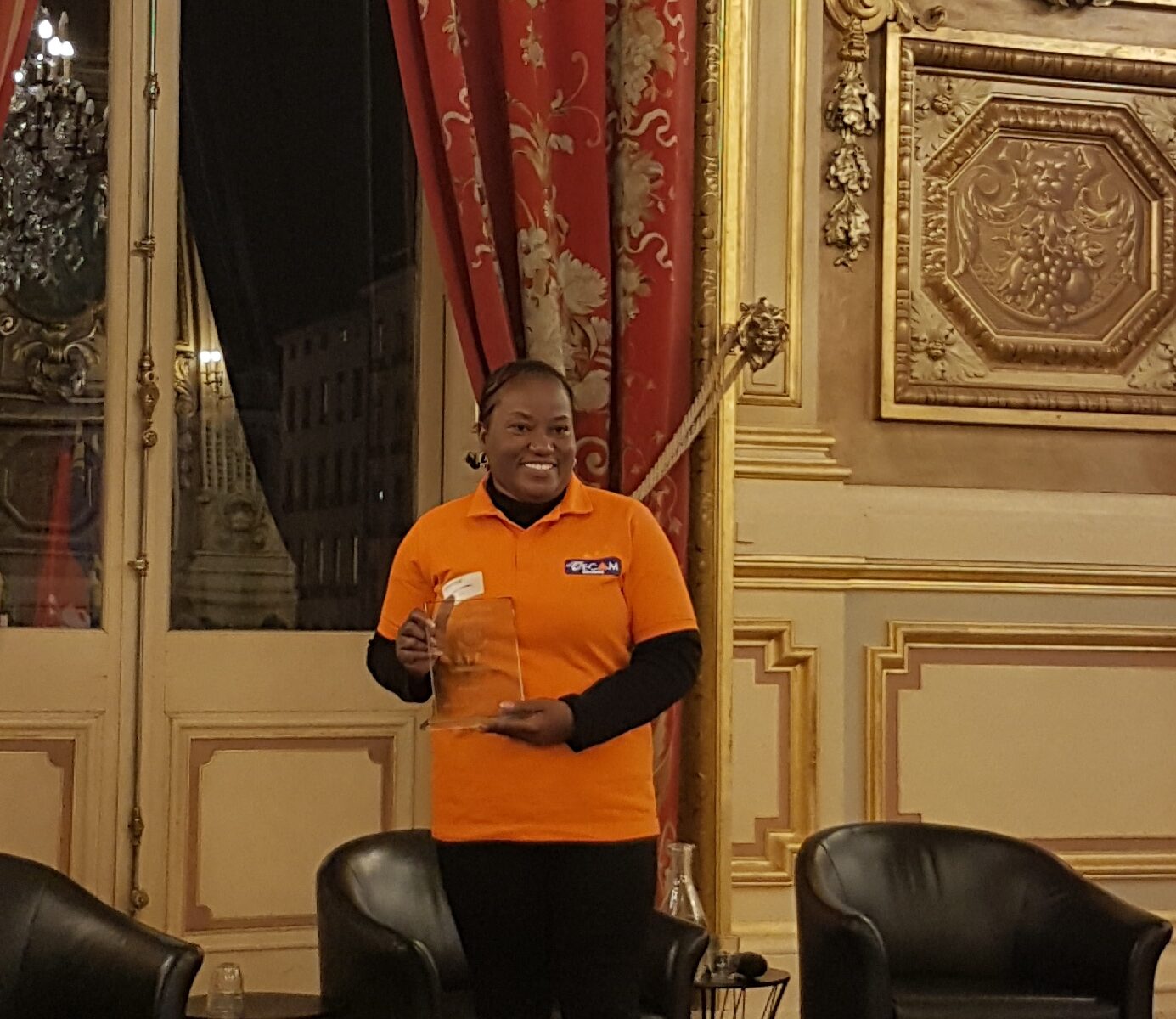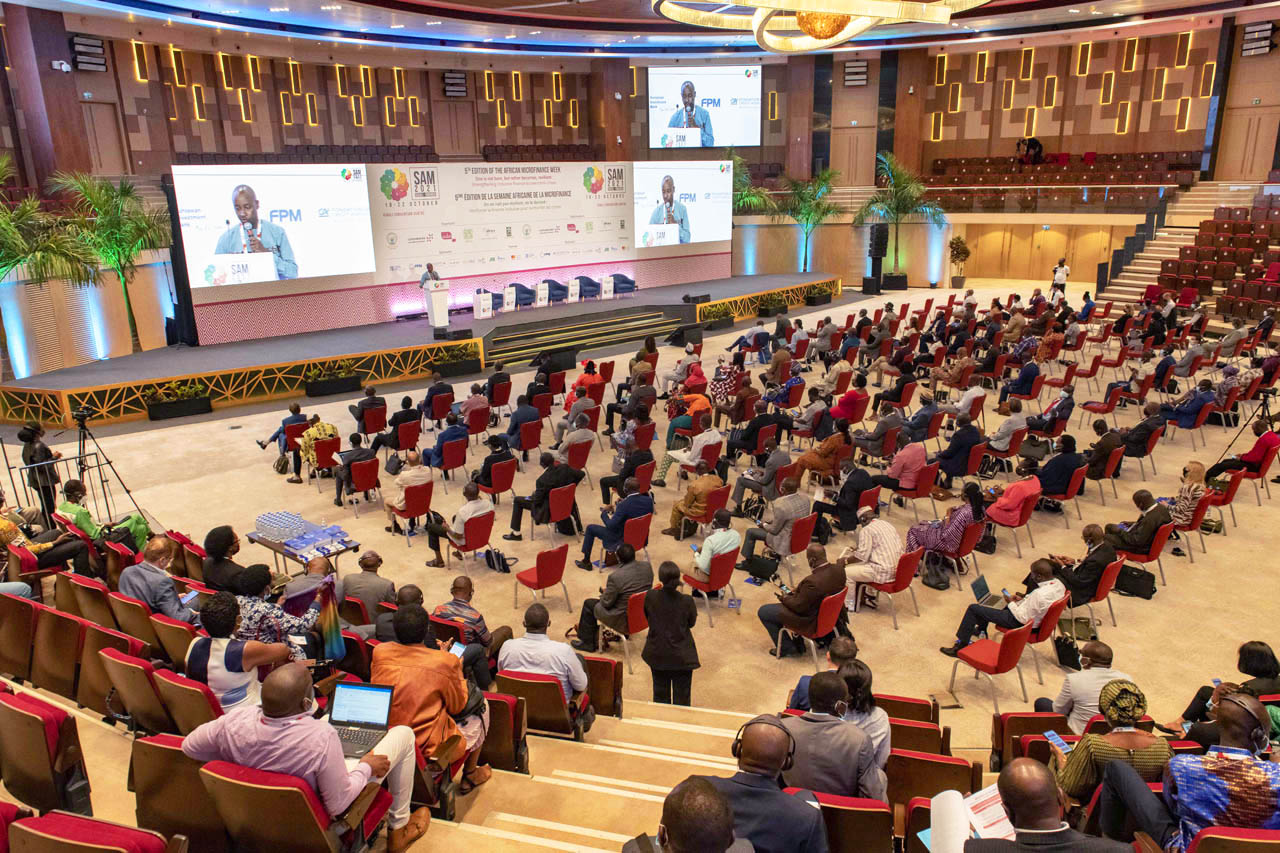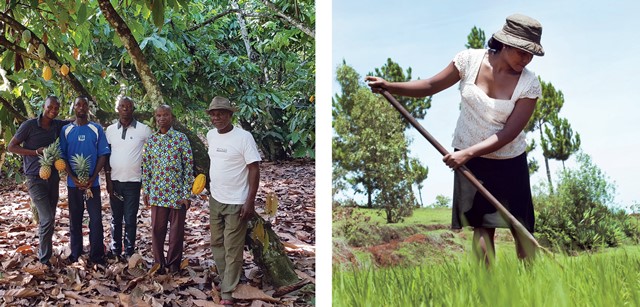[chapeau] Every year, FAIR and the newspaper Le Monde join forces to award the Grands Prix de la finance solidaire. This year, for the 12th edition, two SIDI partners have been nominated in the International Prize category: the ECAM cocoa cooperative in Côte d’Ivoire and Vahatra, a social micro-finance institution in Madagascar. [/chapeau]
In Madagascar, the Vahatra association – Malagasy for roots – was created in 2002 by two associations, one French and the other Malagasy, with the aim of combating extreme poverty in the center of the island. The originality of its intervention lies in the fact that it combines savings, credit, social support and mutual health insurance services.
Vahatra targets people living below the poverty line (less than 2USD/day) and 67% of its customers are women. In addition, 77% of its portfolio is dedicated to agricultural financing. Its integrated approach, combining economic and financial tools with social and health support, makes it a unique partner in a country that suffers from a lack of public support and dramatic inaction in rural areas. The association gives these poor people the opportunity to benefit from advice, training and loans, enabling them to develop an income-generating activity. This economic support is backed up by individualized social follow-up to help families resolve other problems, such as children’s schooling, lack of identity documents, health or family budget management.
Vahatra has benefited from solidarity finance since 2015 through SIDI in the form of guarantees that have enabled it to take on debt with local banks in order to develop its portfolio. This contribution is necessary for an MFI that targets populations considered too risky by other players. In addition, solidarity finance provides Vahatra with support for its future institutional transformation. Although Vahatra will be supporting 17,277 borrowers in 2020, it is not yet self-sufficient and needs to step up its activities to break even. In order to be able to receive capital financing and comply with the requirements of the regulator, it has therefore embarked on a transformation into a limited company. With the separation of microcredit and social activities, the latter should be fully covered by subsidy programs, enabling the microcredit component to boost its profitability. The association will retain a majority shareholding in the SA dedicated to microfinance in order to guarantee its social mission. SIDI is also examining the possibility of acquiring a stake in the future entity, to help ensure the sustainability of its unique and essential service offering in this very poor region of Madagascar.
The Entreprise Coopérative des Agriculteurs de Méagui (ECAM) is located in the southwest of Côte d’Ivoire, in the country’s leading cocoa-producing region. The cooperative was created in 2004 on the initiative of 87 cocoa producers. A very dynamic cooperative, ECAM currently has 2113 cocoa farmers, including 322 women. As cocoa is traditionally a “man’s business”, ECAM encourages planters to hand over part of their plots to their wives, enabling these women to become producer-members of the cooperative.
ECAM brings strong added value to its members as a direct result of its social and environmental mission. The cooperative thus has a five-year development plan drawn up in cooperation with its members, which it uses to determine how to use the premiums linked to the fair trade and UTZ/Rainforest certifications it has acquired. Half of these premiums are paid directly to producers in proportion to volumes delivered, in line with our policy of improving their income. The cooperative also helps them diversify their income, mainly through market gardening and poultry farming. At the same time, part of the premiums is used for social projects: direct aid to the poorest – distribution of food and school kits, for example – and public service projects such as the construction of schools or pumps.
Solidarity finance has played a crucial role in the development of ECAM, which has seen the number of its members double since it gained access to it. This financing, since 2017 through FEFISOL, the investment fund in which SIDI is a founding shareholder, and then from SIDI since 2020, has first enabled it to limit payment delays to its producers. And, more generally, to guarantee a degree of autonomy vis-à-vis its buyers, whose pre-financing is both uncertain and insufficient in terms of duration and amount.
With nearly 6,500 tonnes of production per year from an area of over 1,202 ha, ECAM is now one of Côte d’Ivoire’s most recognized cocoa cooperatives, as much for its operational performance as for its social and environmental impact.
ECAM is a cooperative that supports its producers while respecting the environment. The environmental issue, crucial in the cocoa sector, has been central to its approach since 2016. The cooperative geolocates plots to preserve protected forests, and is developing a nursery project to distribute shade trees to planters, with the aim of limiting evaporation in the dry season and recreating biodiversity in the plots. In 2018, it started a program to convert some of its members to organic: 55 are certified organic to date, making it one of the country’s 5 organic cooperatives. Around a hundred growers have also begun conversion.
Join FAIR and Le Monde in Lyon on November 9 to discover the 2021 winners!
Further information: www.vahatra.mg www.ecam-meagui.com
